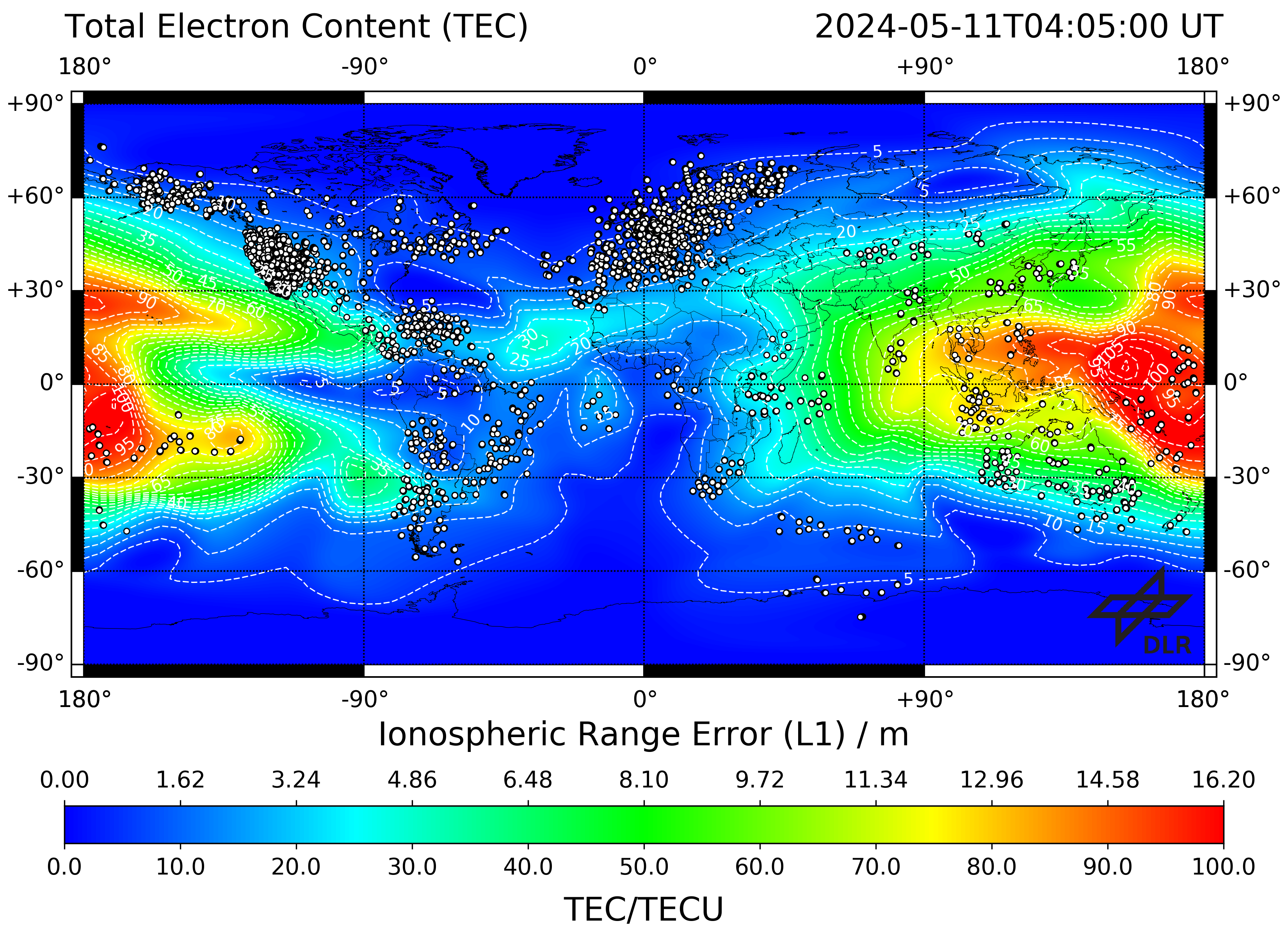
 What is Total Electron Content?
What is Total Electron Content?
What is TEC?
TEC is the total number of free electrons present along a path between two points.
Why is TEC important for HF propagation conditions?
TEC correlates with the critical frequency, foF2 ↗, and is therefore implemented in a variety of ionosphere models. Moreover, the total electron content can provide additional information about the structure and dynamics of the ionosphere. It can detect and monitor ionospheric disturbances, such as those caused by solar flares or geomagnetic storms.
Units: 1 TEC Unit (TECU) is the number of free electrons per square meter (x1016) for a shell height of 400 km directly above a certain point. Values in Earth’s atmosphere can range from a few to several hundred TEC units.
How is TEC measured?
Data is gathered from GPS receivers worldwide, observing carrier phase delays in radio signals from satellites above the ionosphere, often using GPS satellites.
The effect of Tropospheric weather ↗:
The troposphere and ionosphere are separate atmospheric regions with distinct functions. However, they do interact through various processes.
Tropospheric lightning may induce changes in total electron content and consequently affect HF propagation conditions.
lighting storms can also worsen the signal-to-noise ratio (SNR), in particular in the lower HF bands; i.e., tropospheric weather↗ may affect these conditions, especially in tropical regions.
Thus, monitoring and modeling TEC patterns and variations allows us to better understand and prepare for the constantly changing atmospheric conditions.
The Ionosphere Monitoring and Prediction Center operated by the German Aerospace Center (DLR) provides near real-time TEC map:
Solar EUV radiation, solar wind, CMEs, and atmospheric disturbances all contribute to TEC fluctuations, which vary with time, location, seasons, geomagnetic conditions, troposphere conditions, and the solar cycle. Data analysis may reveal qualitative patterns for spring, fall, summer, and winter solstices.
shows near-real-time indices and explains what the terms mean.
